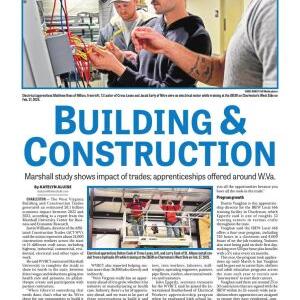NEW YORK ňňň˝ĘÓƵ” U.S. stocks slumped on Tuesday under the weight of another jump for the price of oil. It was a for financial markets after Wall Streetňňň˝ĘÓƵ™s worries about Israelňňň˝ĘÓƵ™s fighting with Iran .
The S&P 500 fell 0.8% following signals that the may be worsening and that one of the U.S. economyňňň˝ĘÓƵ™s main engines . The swing sent Wall Streetňňň˝ĘÓƵ™s main measure of health nearly back to where it started the week.
The Dow Jones Industrial Average dropped 299 points, or 0.7%, and the Nasdaq composite fell 0.9%.
Stocks sank under increasing pressure from crude oil prices, which climbed in their latest see-saw move. A barrel of benchmark U.S. crude jumped 4.3% to $74.84. Brent crude, the international standard, added 4.4% to $76.45 per barrel.
Their gains accelerated after President Donald Trump raised the temperature on Israelňňň˝ĘÓƵ™s fight with Iran by calling for ňňň˝ĘÓƵśUNCONDITIONAL SURRENDER!ňňň˝ĘÓƵť on his social media platform and saying, ňňň˝ĘÓƵśWe are not going toňňň˝ĘÓƵť kill Iranňňň˝ĘÓƵ™s leader, ňňň˝ĘÓƵśat least for now.ňňň˝ĘÓƵť
Before that, Trump had left a and warned that people in Iranňňň˝ĘÓƵ™s capital should evacuate immediately. It took only about eight hours for Trump to go from suggesting a nuclear deal with Iran remained ňňň˝ĘÓƵśachievableňňň˝ĘÓƵť to for their lives.
The fighting has the potential to drive up prices for crude oil and gasoline because Iran is a major producer of oil, and it sits on the narrow Strait of Hormuz, through which much of the worldňňň˝ĘÓƵ™s crude passes. Past conflicts in the area have caused spikes in oil prices, though theyňňň˝ĘÓƵ™ve historically proven to be only temporary after showing that they did not disrupt the flow of oil.
Often, higher oil prices can help stocks of companies in the solar industry because they increase the incentive to switch to alternative energy sources. But solar stocks tumbled Tuesday because of the possibility that , wind and other energy sources that produce fewer emissions that change the Earthňňň˝ĘÓƵ™s climate.
Enphase Energy dropped 24%, and First Solar fell 17.9%.
Treasury yields also fell in the bond market after a report said shoppers spent less last month at U.S. retailers than the month before and than economists expected. Solid such spending has been one of the linchpins keeping the economy out of a recession, but part of Mayňňň˝ĘÓƵ™s drop may have simply been a return to more normal trends.
In April, some shoppers had rushed to buy automobiles to get ahead of .
ňňň˝ĘÓƵśTodayňňň˝ĘÓƵ™s data suggests consumers are downshifting, but they havenňňň˝ĘÓƵ™t yet slammed the brakes,ňňň˝ĘÓƵť according to Ellen Zentner, chief economic strategist for Morgan Stanley Wealth Management
On the winning side of Wall Street was Jabil, which jumped 8.9% after reporting a stronger profit for the latest quarter than analysts expected. CEO Mike Dastoor credited strength from accelerated demand related to artificial-intelligence technology, among other things.
Verve Therapeutics soared 81.5% after Eli Lilly said it would buy the company developing genetic medicines for cardiovascular disease in a $1 billion deal that could be worth up to $1.3 billion if certain conditions are met. Lillyňňň˝ĘÓƵ™s stock fell 2%.
All told, the S&P 500 lost 50.39 points to 5,982.72. The Dow Jones Industrial Average dropped 299.29 to 42,215.80, and the Nasdaq composite sank 180.12 to 19,521.09.
All the action took place as the a two-day meeting on interest rates. The nearly unanimous expectation among traders and economists is that the Fed will make no move.
The Fed has been , and itňňň˝ĘÓƵ™s been on hold this year after cutting at the end of last year, because itňňň˝ĘÓƵ™s waiting to see how much Trumpňňň˝ĘÓƵ™s tariffs will hurt the economy and raise inflation. has remained recently, and itňňň˝ĘÓƵ™s near the Fedňňň˝ĘÓƵ™s target of 2%.
More important for financial markets on Wednesday will likely be the latest set of forecasts that Fed officials will publish for where they see the economy and interest rates heading in upcoming years.
In the bond market, the yield on the 10-year Treasury eased to 4.38% from 4.46% late Monday.
In stock markets abroad, indexes fell across much of Europe after finishing mixed in ňňň˝ĘÓƵia.
Tokyoňňň˝ĘÓƵ™s Nikkei 225 index rose 0.6% after the Bank of Japan opted to keep its key interest rate unchanged. Itňňň˝ĘÓƵ™s been gradually raising its rate from near zero and cutting back on its purchases of Japanese government bonds to help counter inflation.
AP Business Writer Elaine Kurtenbach contributed.












